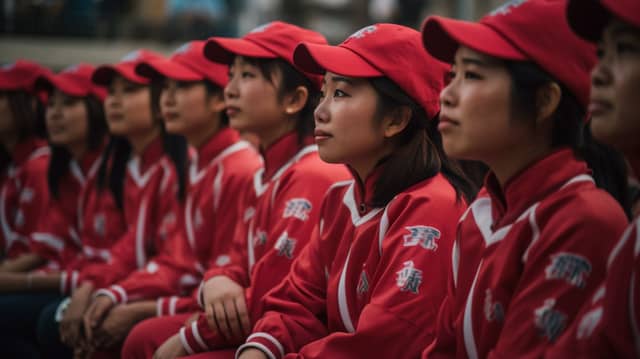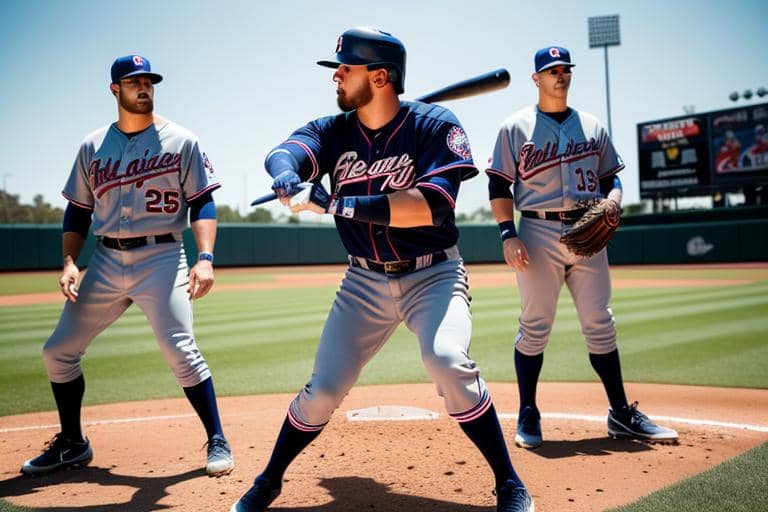- Have you ever been curious about how Japanese baseball is structured? How many innings in Japanese baseball? may be on your mind if you’re a fan of the sport or just interested in learning more.
This article How Many Innings in Japanese Baseball will address this query and cover a number of other fascinating topics as we journey through the distinctive features of Japanese baseball.
Traditional Innings in Japanese Baseball
Like its American equivalent, baseball is traditionally played in nine innings in Japan. Every team gets a turn at bat and in the field, trying to score runs while preventing the other team from doing the same.
Extra Innings and Tiebreakers
In the event of a tie, Japanese baseball introduces some exciting twists, unlike Major League Baseball in the United States. Extra innings may be played if a game is tied after nine innings, but not forever. There is a rule known as the “Tiebreaker Rule” in Nippon Professional Baseball (NPB), the top league in Japan. In this scenario, the tenth inning is when each team gets a chance to score. The game ends in a draw if there is still a tie.
Related: How to get out of a hitting slump? Best 5 Tips
What is Differences from Major League Baseball?
Major League Baseball and Japanese baseball are very similar, but Japanese baseball has unique qualities of its own. Japanese baseball is distinct from other baseball games due to its use of a slightly smaller ball and altered strike zone. Japanese baseball also emphasizes teamwork and discipline a lot, which gives the game an intriguing new dimension.

Historical Perspective
Japanese baseball has a long history that began when American teachers introduced it to the sport in the late 19th century. With the rapid rise in popularity of the game, Japan now boasts a vibrant baseball culture complete with its own stars and legends.
Strategies in Japanese Baseball
Japanese baseball is renowned for emphasizing small-ball strategies like hit-and-runs, bunting, and stealing bases. These tactics frequently result in unexpected twists and turns, which can make games incredibly dynamic and exciting to watch.
Role of Pitchers
In Japanese baseball, as in any other version of the game, pitchers are essential. Japanese pitchers are renowned for their control and accuracy, and they frequently go through intense training to become experts in their field. It can be fascinating to watch a Japanese pitcher at the top of their game.
Exciting Japanese Baseball Leagues
There are numerous professional baseball leagues in Japan, the most prominent of which is Nippon Professional Baseball (NPB). The Central League and the Pacific League make up the NPB. Teams in each league are distinct entities that engage in intense competition to win the championship.
Fans and Atmosphere

Baseball fans in Japan are known to be fervent and well-organized. Fans sing and chant in unison for their teams, creating an electrifying atmosphere in stadiums. Japanese baseball games are unforgettable because of their distinctive fan culture.
Unique Rules and Customs
Japanese baseball differs from other leagues with some unique regulations and traditions. The “no-pitch intentional walk” rule, for example, permits a batter to reach first base without a pitch being thrown. In addition, it is traditional for coaches and players to bow before and after every game as a show of respect for the umpire.
Future of Japanese Baseball
Japanese baseball has a bright future because there are a number of young players making their mark. International interest in Japanese baseball is growing as the sport continues to develop. In the upcoming years, Japanese baseball is probably going to become more and more significant on the international scene.
Also Read: How many baseball games in a season In MLB: Best 10 Facts
Things You Should Know Before Attending a Japanese Baseball Game
Here’s a list of things I’d recommend you be aware of before going to watch a baseball game in Japan.
- Be prepared to have fun!
- Choose wisely where you sit because home and opposing fans are not mixed together. If you’re unsure which team you’re rooting for, probably pick the home team and sit where many of their fans are.
- While Meiji Jingu is an open-air ballpark, some teams will play in domed stadiums.
- While Japan has adopted many of the rules of American baseball, not everything has carried over (yet) such as the pitching clock. That means the game could theoretically last longer than three hours and even go into extra innings. Our tour guide joked(?) that some games could last until the wee morning hours. Thankfully ours did not.
- The food selection at the stadiums is a mix of American and Japanese cuisine. At Meiji Jingu Stadium, you could get chicken nuggets and fries and also sushi — there’s something for everyone.
- Clean up after yourself. When the game ends, fans are diligent about taking their waste away with them. Some diehards will even have brought a garbage bag to collect all the trash they created.
- Be careful of inebriated fans stumbling out of the stadium. On our way home, we came across two people carrying their friend who had way too much to drink. Oh, and know when you’ve drunk enough!
- Speaking of alcohol, vendors will bring beers to you and pour them right on the spot. And you can easily spot the brand of choice by the color of the clothes the pourer is wearing.
- It was okay to bring bags and backpacks into Meiji Jingu Stadium, but be sure to check with the ballpark before you go because each one might be different. We had a quick bag check before entering the stadium, not unlike anything in the U.S.
- I did bring my Sony mirrorless camera (a7c) with me to the game. It seemed okay to have a professional camera with you, just as long as you’re not interfering with the viewing experience of those around you. I probably could have brought a telephoto lens with me.
How Many Innings in Japanese Baseball Frequently Asked Questions (FAQs)
How many innings are played in a regular Japanese baseball game?
Similar to Major League Baseball, a regular game in Japanese baseball nine innings are there.
Are there extra innings in Japanese baseball?
Yes, extra innings are played until a winner is determined if a game remains tied after nine innings. However, there are instances during the regular season where, under specific conditions, a game may end in a tie after 12 innings.
How does the tiebreaker rule work in Japanese baseball?
The 13th inning is when the tiebreaker rule is put into effect. Accordingly, until a team wins the game, a runner is put on second base at the beginning of each half-inning.
Can a game end in a tie during the regular season?
It’s true that regular-season games can end in a tie after 12 innings if there’s been more time than allotted or if both teams agree to end the series in a tie.
Are there any differences in the playoff format in Japanese baseball?
Yes, extra innings will be played in the playoffs if a game remains tied after 12 innings and one team does not win. Postseason games cannot contain ties.
Conclusion
To sum up, Japanese baseball presents a distinctive and captivating perspective on the beloved game. Any baseball fan must see it because of its unique style, thrilling extra-inning tiebreakers, and traditional nine innings. Consequently, Japanese baseball is bound to win you over whether you’re an ardent follower or just an interested spectator.
